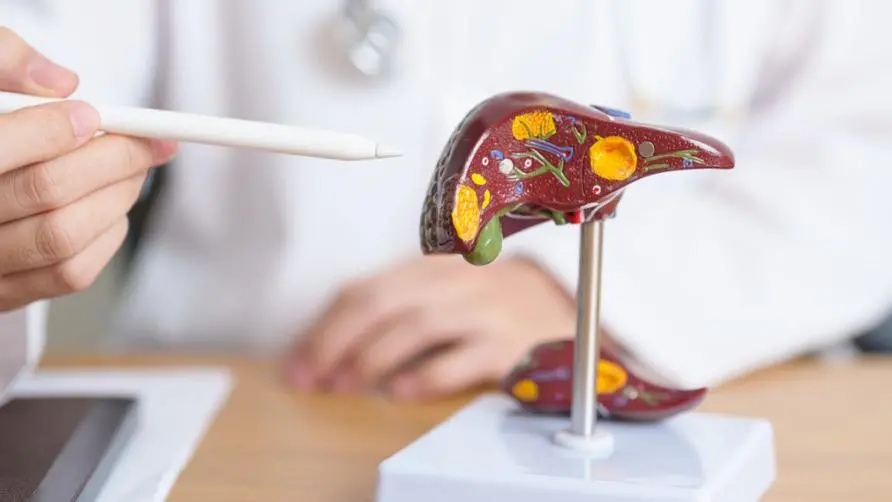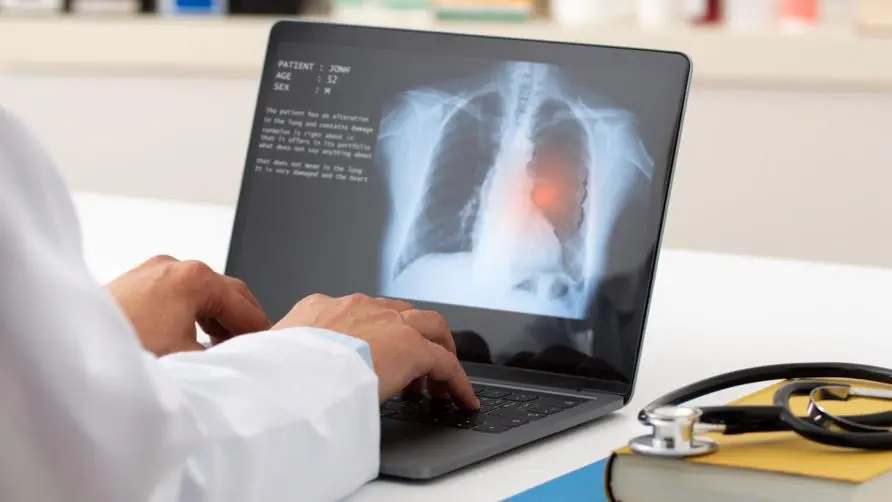Will you develop fatty liver disease if you don't stay up late or drink alcohol? Nutritionist reveals 3 major risk factors: Don't think that being in good shape means everything will be fine

Do not stay up late, do not drink alcohol, and eat light and not greasy food. Even if you maintain a daily routine like a “healthy model student”, is it still possible to suffer from “fatty liver”? Li Liangyi, a nutritionist at Lianxin Clinic, said that the causes of fatty liver are complex. In addition to factors such as obesity and alcohol, drugs and infection are also major causes. If you are not obese and eat less oil and less salt, but still suffer from fatty liver, the main cause is “malnutrition”.
Will you develop fatty liver disease if you don’t stay up late or drink alcohol? Nutritionist reveals 3 reasons: Not eating enough of these nutrients
Nutritionist Li Liangyi explained that fatty liver is a common health problem for modern people. In 2022, as many as 61% of the patients tested had fatty liver problems. In fact, fatty liver caused by malnutrition is not uncommon; a nearly 40-year-old female patient once came to the clinic for help due to fatty liver problems. She believed that she paid great attention to diet and had long-term strength training to maintain a good figure. Sugar drinks have a negative impact on the body, so you will try to drink half-sugar drinks or freshly squeezed fruit juices.
Unexpectedly, after a physical examination, this “model healthy student” discovered that he had moderate fatty liver. The main reason was due to insufficient intake of “protein”, excessive intake of refined sugar or carbohydrates, and excessive oxidative stress. High causes. Nutritionist Li Liangyi further pointed out that fatty liver caused by malnutrition can be roughly divided into two major causes:
Insufficient protein intake. Due to insufficient protein in the body, it is difficult for the liver to synthesize enough lipoproteins to combine the fatty acids eaten with proteins and transport them to various tissues for utilization, causing fat to slowly accumulate in liver cells.
Excessive intake of carbohydrates or refined sugars. When protein intake is insufficient and carbohydrate or refined sugar intake is high, the body will tend to conserve energy and try to convert the ingested food into fat, especially into visceral fat accumulation.
The oxidation pressure is too high. Oxidative stress is ubiquitous. Radiation, air pollution, heavy metals, life stress, excessive exercise and other reasons may cause oxidative stress, produce free radicals, and cause inflammatory reactions. Excessive free radicals will affect the liver’s ability to metabolize fat, making it easier to accumulate fat.
Just exercising and controlling your diet are not enough? Nutritionist reveals 4 tips to avoid fatty liver
Dietitian Li Liangyi emphasized that although there are many reasons for the formation of fatty liver, apart from uncontrollable factors such as infection and drugs, if you want to avoid the formation of fatty liver, eating habits, daily routine, regular testing and appropriate supplementation of health foods when needed are still the key to avoiding the formation of fatty liver. The only method. It is recommended that the public should take the initiative to take 4 measures to avoid fatty liver from showing up:
Eat enough protein, fruits and vegetables. Protein is the main component of various tissues in the body and one of the three important nutrients in the body. Therefore, it is important to consume enough protein according to the amount of daily physical activity. When consuming protein, please note that you should have a balanced intake of high-quality proteins such as soybeans, edamame, chickpeas, soy milk, eggs, fish, chicken, etc. in three meals, and avoid ingesting large amounts at the same meal, which will affect the digestion and absorption of protein.
In addition, antioxidant vitamins such as vitamin C, phytochemicals, sulfur-containing compounds, etc. can assist the detoxification ability of glutathione in the liver. Therefore, it is recommended to eat more colorful vegetables, such as bell peppers, tomatoes, cauliflower, asparagus, Onions, garlic, radishes, cabbage, or artichokes, known as super anti-inflammatory foods, can help reduce oxidative stress.
Exercise moderately. If liver maintenance is the premise, aerobic exercise is better than anaerobic exercise, such as brisk walking, ultra-jogging, swimming, stair climbing, etc., which can be done in moderation. In addition, people who are overweight or have high blood pressure should be careful not to exercise too intensely, which will increase the burden on the heart. People should also remember to stretch and relax well after exercising.
Regular liver screening. Because fatty liver disease does not necessarily have symptoms, many people ignore their liver condition. It is recommended that the public should get an early understanding of liver status through regular testing. For example, “Liver Fibrosis and Fatty Liver Quantitative Analysis” is a non-invasive test that can specifically quantify the degree of liver fibrosis or fatty liver; “Oxidative Stress Analysis” can evaluate the current status of the body. Whether you are under oxidative stress or whether your body has sufficient antioxidant capacity to resist free radical damage.
The “Antioxidant Vitamin and Mineral Test” can help evaluate whether there is an imbalance in daily eating habits, and also understand whether the dosage of antioxidant vitamin supplements is appropriate. “Nutritional and Toxic Element Analysis” can help you understand whether the minerals in your body are balanced or whether there is accumulation of heavy metals, so as to facilitate subsequent nutritional element supplementation and adjustment or the elimination of heavy metals.
Consume health foods in moderation. Sometimes supplementing the support of liver-protecting health foods in moderation is also a way to treat yourself well. However, the public is reminded that before supplementing with health food, it is recommended to consult a professional physician or nutritionist, and never listen to online remedies and take drugs from unknown sources, so as not to increase the burden on the liver.
Finally, nutritionist Li Liangyi said that if most organs have abnormality, the body will warn of abnormal conditions. However, the liver is a silent but loyal and reliable organ, so it must be carefully protected, and special attention should be paid to nutritional balance to avoid fat accumulation affecting the liver. healthy.
Further reading:





